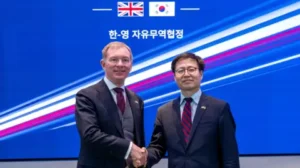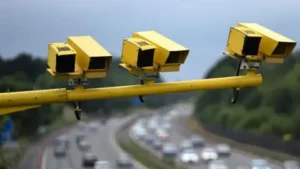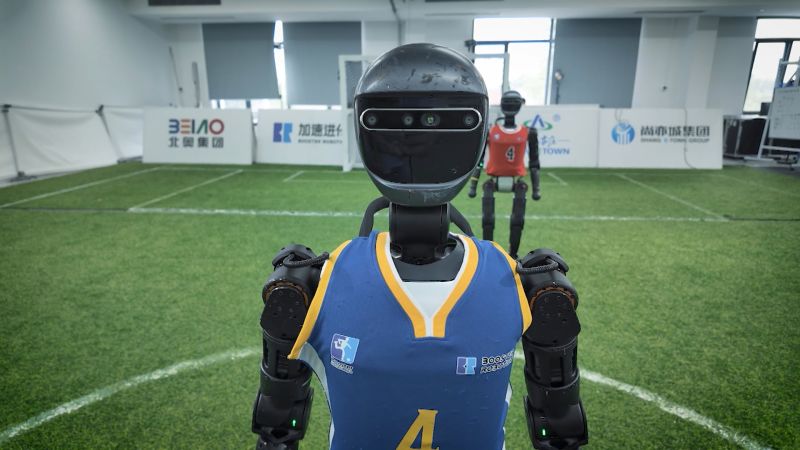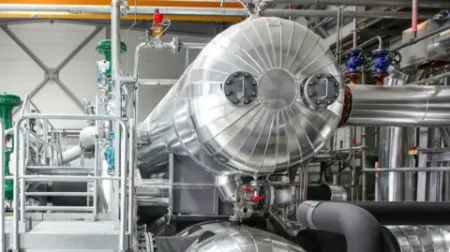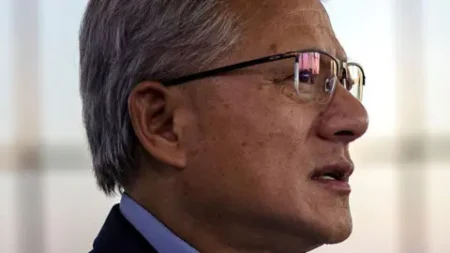In a remarkable exploration of China’s burgeoning artificial intelligence sector, CNN’s Marc Stewart was granted exclusive access to observe the innovative strides being made in the realm of AI-powered robotics. This access included a firsthand look at a company that is not only pioneering technological advancements but is also pushing boundaries by testing its robotic droids on the soccer field. The findings from this investigation highlight the profound efforts being made by China to position itself at the forefront of the global technology race, particularly in the development of AI.
The advent of AI-powered robots in various sectors demonstrates a strategic initiative by China to harness cutting-edge technologies that promise to revolutionize industries. This is not simply about advancement for the sake of impressing a domestic audience; rather, it reflects a well-calculated effort to ensure that China assumes a commanding role in the future of technological innovation across the globe. The applications for these AI-powered machines are expansive, extending beyond simple consumer goods to cover critical domains like food delivery systems and military operations.
As we delve deeper into the implications of this shift, it becomes clear that the soccer field is merely a testing ground for much larger ambitions. The company’s robots, once integrated into everyday tasks, could alleviate burdens within the logistics sector, enhance efficiency in urban environments, and streamline food delivery systems by responding to real-time data and adjusting routes accordingly. Such capabilities would not only improve service delivery but could also lead to significant economic savings for businesses.
Moreover, the military applications of these AI technologies cannot be overlooked. Advanced robotics outfitted with AI could transform the landscape of defense and security, equipping military forces with the ability to perform complex operations with increased precision and safety. This dual-use nature of technology raises ethical questions and security concerns that are being debated within and outside China. As the global power dynamics evolve, the implications of AI innovations in military contexts become exceedingly relevant.
China’s ambitious goals for its robot and AI sector are encapsulated in its national strategy to lead the world in technology by 2035. The Chinese government is making substantial investments in research and development, creating policies that encourage startups and established businesses alike to push the envelope in AI innovation. Through targeted initiatives and public-private partnerships, China aims to cultivate an environment ripe for technological breakthroughs that could redefine industries.
As part of this push, various companies are emerging to compete not only domestically but also on the international stage. These forays into AI are characterized by rapid technological evolution, which presents both opportunities and challenges. For instance, while advancements in robotics and AI can drive economic growth and enhance competitive edge, they also call for comprehensive regulatory frameworks to address concerns surrounding job displacement, privacy, and security.
The synthesis of such technologies further underlines the importance of collaboration. Companies, researchers, and government agencies must work together to create standards that govern AI use while fostering innovation. Additionally, global cooperation is paramount to ensuring that the deployment of AI technology follows ethical guidelines and prioritizes the welfare of humanity.
In conclusion, CNN’s report on Marc Stewart’s exploration of China’s AI-powered robot industry reveals not only the technological prowess being developed within the country but also poses essential questions about its global ramifications. The innovations being tested—whether on the soccer field or in military environments—underscore the multifaceted potential of AI technology. As China races to solidify its status as a leader in this field, the international community must engage in dialogues about the standards and ethical implications surrounding AI advancements to ensure a future where technology serves humanity while maximizing its transformative potential.

